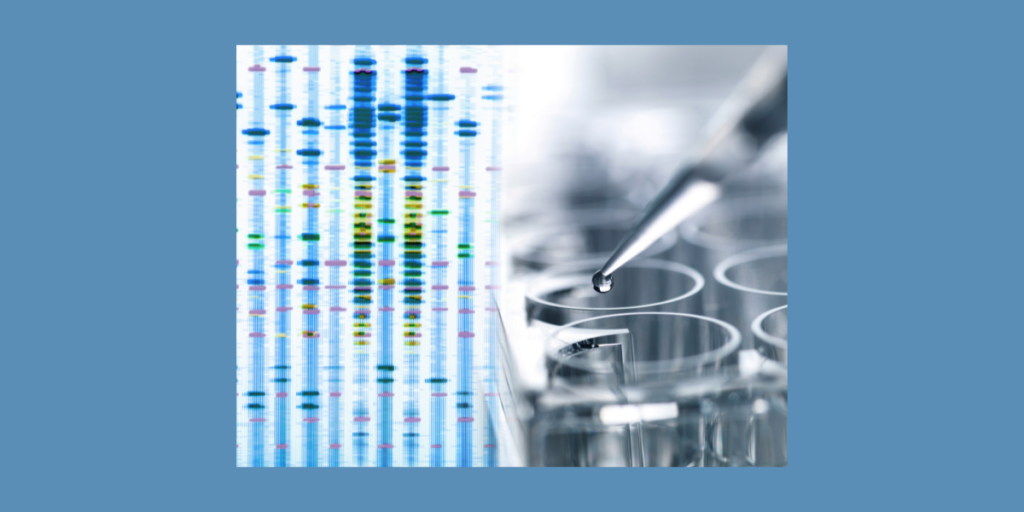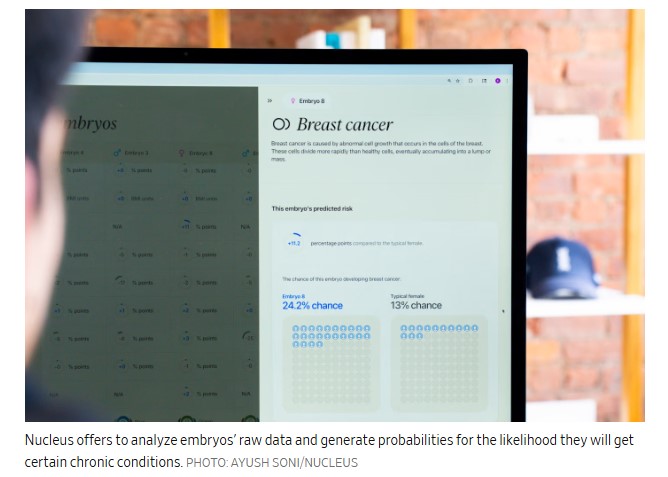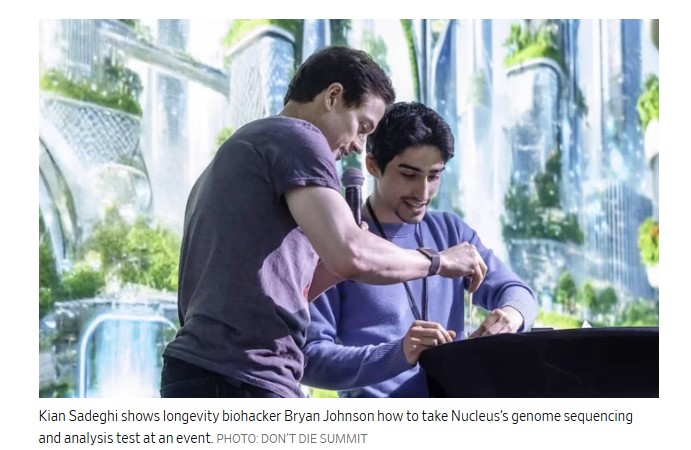
Longevity Is Now a Factor When Picking an Embryo for IVF
By: Amy Dockser Marcus, originally published June 4, 2025, The Wall Street Journal
DNA analysis predicts likelihood of age-related conditions such as heart disease and cancer
Prospective parents using IVF will soon be able to rank embryos using genetic and other information in the hopes of extending the longevity of their offspring, according to the 25-year-old entrepreneur behind Nucleus Genomics, a DNA testing and analysis company.
“Lifespan has dramatically increased in the last 150 years,” said Kian Sadeghi, the company’s founder and chief executive. “DNA testing to predict and reduce chronic disease can make it happen again.”
Nucleus plans to charge $5,999 for an analysis of up to 900 conditions, including diseases that occur later in life and are major causes of death in older people such as Alzheimer’s disease, heart disease and cancers. The company will analyze up to 20 embryos.
The embryos are given probabilities for the likelihood they will get these chronic conditions. It is up to the parents to decide the qualities most important to them when choosing which embryos to use. They can book sessions with genetic counselors if they want to discuss the results.
IVF doctors and clinics routinely offer to test embryos for chromosomal abnormalities that can cause genetic conditions such as Down syndrome, and prospective parents who know they are at risk of having a child with a lethal disease caused by mutations in a single gene, such as Tay-Sachs or sickle-cell disease, are advised to screen their embryos.

Nucleus is offering to generate risk scores for embryos’ likelihood of getting diseases caused by hundreds or even thousands of genes. Called polygenic risk scores, this type of analysis isn’t currently recommended by most medical societies. The scores are probabilities and don’t mean that someone will get the condition.
Nucleus also provides probability assessments for the embryos’ IQ, height and eye color. Sadeghi said that Nucleus informs customers of the strength of the various predictions. IQ predictions are limited in accuracy, according to the company.
Sadeghi said he doesn’t draw a line between people who want to take a DNA test so they can know their own risks and try to prevent diseases and those who screen and rank embryos to choose one with a better chance of living far beyond 85.
“It is the same underlying motivation,” he said. “It is about living a longer, healthier life.”
Dr. Paula Amato, a fertility doctor at Oregon Health & Science University, said ethicists worry that these types of rankings will result in a society that doesn’t value certain types of children.
When it comes to her own practice, she will not transfer an embryo with an abnormal number of chromosomes into a woman’s uterus as part of IVF. But if patients seek out additional analyses and choose among the remaining embryos based on personal preferences, she said: “That’s their prerogative. I won’t stop them.”
Nucleus doesn’t do genetic tests of embryos. It is partnering with Genomic Prediction, which works with IVF clinics to test embryos for chromosomal abnormalities and to calculate risk scores for 13 polygenic diseases, including diabetes, heart diseases and cancers.
Nathan Treff, chief scientific officer of Genomic Prediction, said the company has tested 120,000 embryos for IVF clinics and doctors. For around 5,000 of those embryos, doctors and clinics also ordered the risk scores to help people make decisions about which embryos to transfer. Treff said the company doesn’t provide predictions for embryos’ IQ, which is frequently requested by patients.
The company will send the embryos’ raw data to Nucleus for further analysis at customers’ request. Patients are entitled under federal law to request the raw genetic data from clinical labs and can also upload the data to Nucleus themselves.
Predicting embryos’ future risk for chronic diseases is attracting interest in the longevity community. Orchid Health, which launched in 2021, does genetic testing on embryos and provides risk scores for many age-related diseases, charging approximately $2,500 per embryo.

“The longevity community has taken significant interest in our work because we’re essentially enabling families to debug their genetic code for the next generation,” said Diba Massihpour, head of operations at Orchid.
Nucleus’s Sadeghi, the middle of three children born to Iranian immigrants, became interested in science as a child after a young cousin died of what doctors suspected was an unknown genetic heart-rhythm disorder.
He dabbled in Crispr—a gene-editing technology—as a high-school science student and studied computational biology at the University of Pennsylvania. He left school in 2020 during Covid and began pitching an idea for what has become Nucleus from his parents’ basement.
With $200,000 from an angel investor, he hired a few friends and incorporated the company in 2021. He has since raised $32 million, including $1.5 million from Peter Thiel’s Founders Fund and $10 million from Alexis Ohanian’s Seven Seven Six, a venture-capital firm.
Sadeghi is a frequent speaker at longevity conferences, including a recent one at the Buck Institute for Research on Aging. Last year, Nucleus, a sponsor of longevity biohacker Bryan Johnson’s “Don’t Die” conferences, swabbed Johnson for DNA onstage.
Sadeghi sees a direct connection between the longevity movement and embryo testing.
“The longevity movement is about taking medicine back and putting it in the people’s hands,” Sadeghi said. “Why would that not apply now to the most intimate, personal, emotional, sensitive decision you will make? Picking your baby.”
Amy Dockser Marcus is a health and science reporter for The Wall Street Journal.
Images: The Wall Street Journal – Ayush Soni/Nucleus; Don’t Die Summit.
